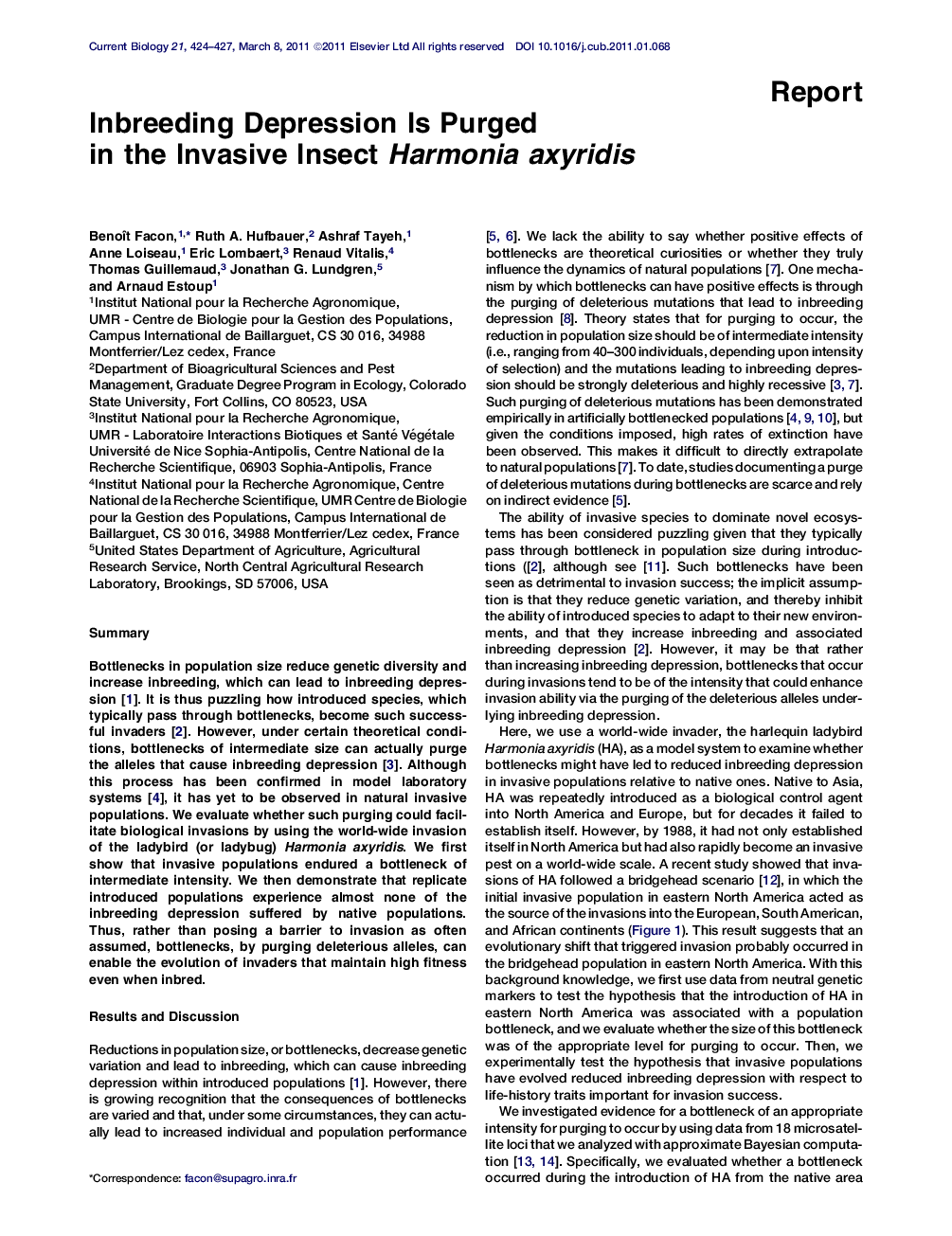| Article ID | Journal | Published Year | Pages | File Type |
|---|---|---|---|---|
| 2043218 | Current Biology | 2011 | 4 Pages |
SummaryBottlenecks in population size reduce genetic diversity and increase inbreeding, which can lead to inbreeding depression [1]. It is thus puzzling how introduced species, which typically pass through bottlenecks, become such successful invaders [2]. However, under certain theoretical conditions, bottlenecks of intermediate size can actually purge the alleles that cause inbreeding depression [3]. Although this process has been confirmed in model laboratory systems [4], it has yet to be observed in natural invasive populations. We evaluate whether such purging could facilitate biological invasions by using the world-wide invasion of the ladybird (or ladybug) Harmonia axyridis. We first show that invasive populations endured a bottleneck of intermediate intensity. We then demonstrate that replicate introduced populations experience almost none of the inbreeding depression suffered by native populations. Thus, rather than posing a barrier to invasion as often assumed, bottlenecks, by purging deleterious alleles, can enable the evolution of invaders that maintain high fitness even when inbred.
► Introduced populations of Harmonia axyridis have passed through a bottleneck. ► Native populations exhibit severe inbreeding depression ► Invasive populations experience little to no inbreeding depression ► Invaders have evolved higher mean fitness overall than their native counterparts.
